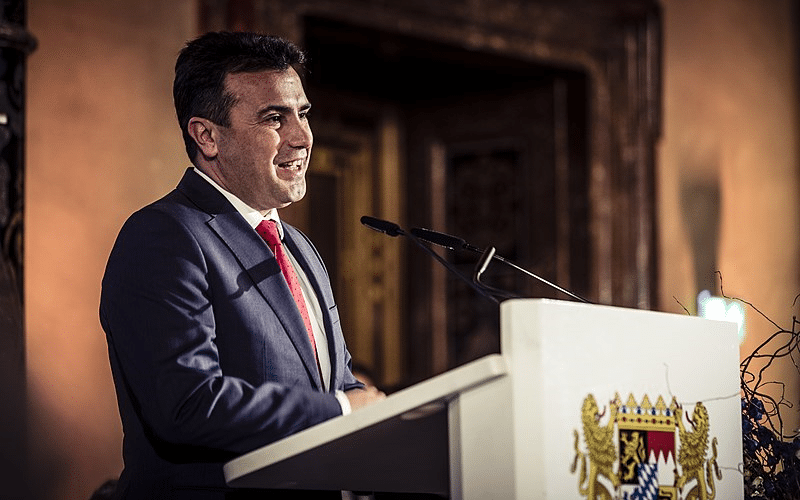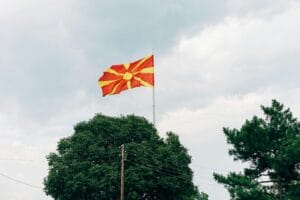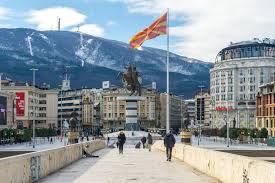On Wednesday the 16th of July, the „We can“ coalition gathered around Social Democratic Union of Macedonia, declared a win in North Macedonia’s parliamentary election. „We Can“ coalition, North Macedonia’s Social Democrats and Besa Movement, won with 36.12% of ballots which translates into 46 out of the 120 seats in parliament. VMRO-DPMNE ( Internal Macedonian Revolutionary Organization – Democratic Party for Macedonian National Unity ) and the Coalition „Renewal for Macedonia“ came in second, with 34.85% (44 seats) of the votes. In the Albanian political bloc, Democratic Union for Integration (DUI) won 11.3% (15 seats) of the votes over the main rival Alliance for Albanians in coalition with Alternative with 8.57% (12 seats) of the votes. Left got 4% (2 seats) of the votes, and Democratic Party of Albanians with 1.6% of the votes won 1 seat in the parliament.
Talks behind closed doors
Numbers show that the difference in MP mandates between the two main political alliances, Social Democrats and VMRO-DPMNE, is only two legislators in the 120-seat parliament. Therefore, none of them will be able to reach the threshold of 61 MPs that is needed to have the majority in the parliament. That could hinder stable leadership at a time when coronavirus infections are surging, and the country’s already weakened economy is heading towards a pandemic-triggered recession.
In such a case, it is clear that the DUI and potentially the other smaller parties will again resume the role of kingmakers during the formation of the next government. The DUI has been in coalition governments for the past 18 years. It has suggested an ethnic Albanian, who make up about a quarter of the population, should be prime minister. After the 2016 parliamentary elections, the DUI withdrew from the coalition with VMRO-DPMNE and formed a coalition with Social Democrats, which ousted the increasingly authoritarian and corrupt VMRO-DMPNE after nearly a decade in power. A similar scenario would now keep the country on a pro-Western course. During the previos term, Zoran Zaev’s government reached a landmark deal with neighbouring Greece to change the country’s name, clearing the way for Athens to lift its veto over Skopje’s accession negotiation with the EU. Following that, North Macedonia became NATO’s 30th member on the 27th of March 2020. It also signed a friendship deal with Bulgaria, removing another impediment to prepare for EU membership.
VMRO-DPMNE openly opposed the name change policy and left little or no room for manoeuvre for coalition talks with the DUI or another, smaller Albanian party. With that in mind, coalition talks and the formation of a Social Democrat-led government should be simple.
However, the coalition government hasn’t been in agreement in the last 12 months. Social Democrats, critised DUI for corruption and political nepotism. In return, DUI asked for the prime minister’s seat as a price for joining the coalition. Bujar Osmani, a high-ranking DUI official and deputy prime minister in charge of European integration, said on Facebook: „All roads lead to Mala Recica“, a village where the party’s headquarter is located.
Another possibility would be for Zaev to form a government with the mandates of other parties that entered the North Macedonian Parliament: The Alliance for Albanians, Left and the Democratic Party of Albanians. That could also be seen as a strategy to by-pass Ali Ahmeti and DUI finally. However, it is questionable whether such a coalition would be sustainable. Among other things, because a narrow majority in parliament would support it.
Further implicantions
Whoever forms the government will have to deal with COVID-19 severe consequences for the health system and economy. Many analysts predict a declining trend in the economy, which would further destabilize the country. Moreover, the expected start of accession negotiations with the European Union could put additional pressure on the government. Lastly, the elections carry broader geopolitical implications, as the EU and the United States seek to decrease Russia’s and China’s influence in the Western Balkans. The US and European observers see Russia actively involved in propaganda and disinformation to sow divisions in North Macedonia in a bid to undermine NATO and EU expansion.
Source: The Radio Free Europe, Aljazeera, DW, N1, Balkan Insight, Euronews
Photo: Wikipedia



